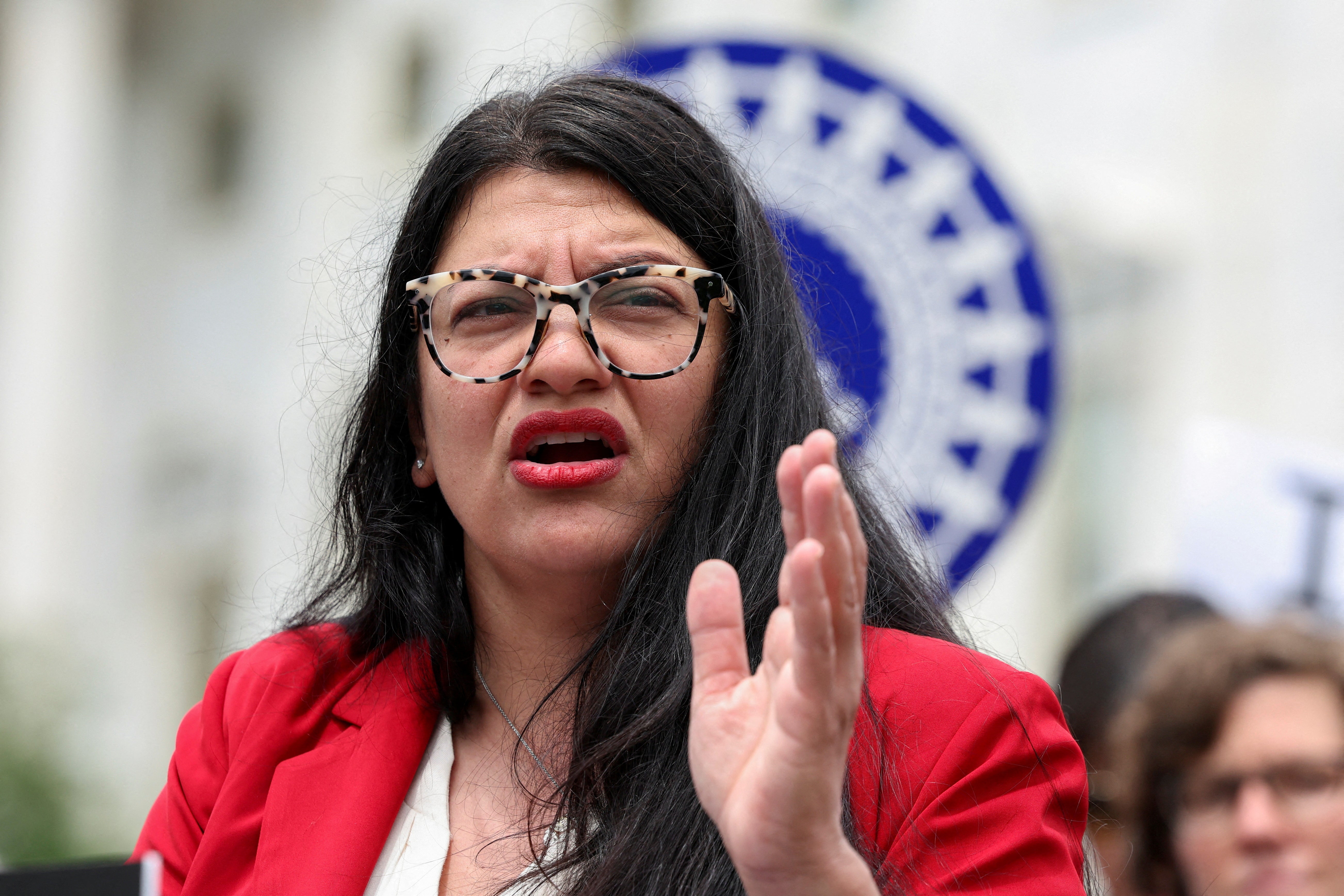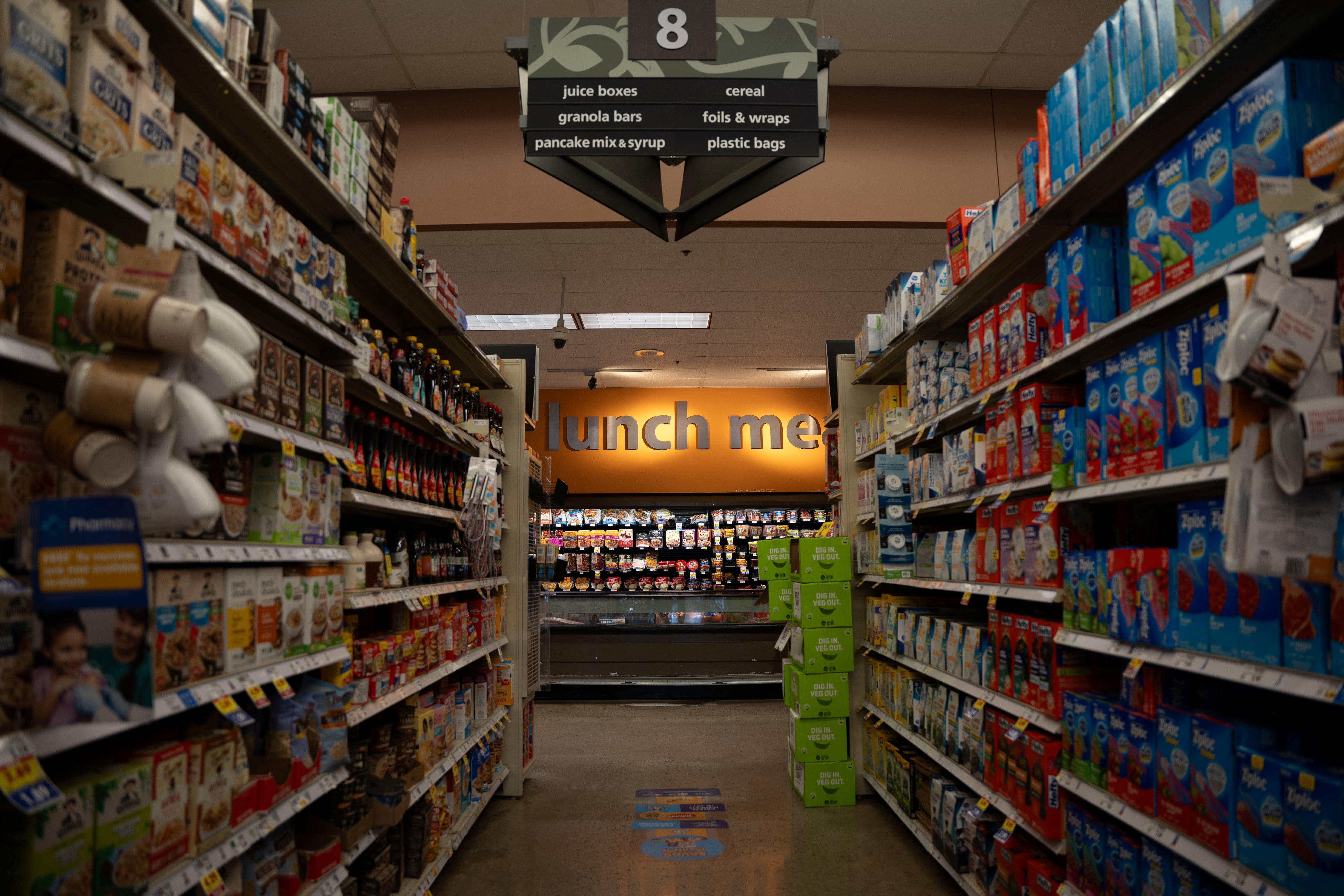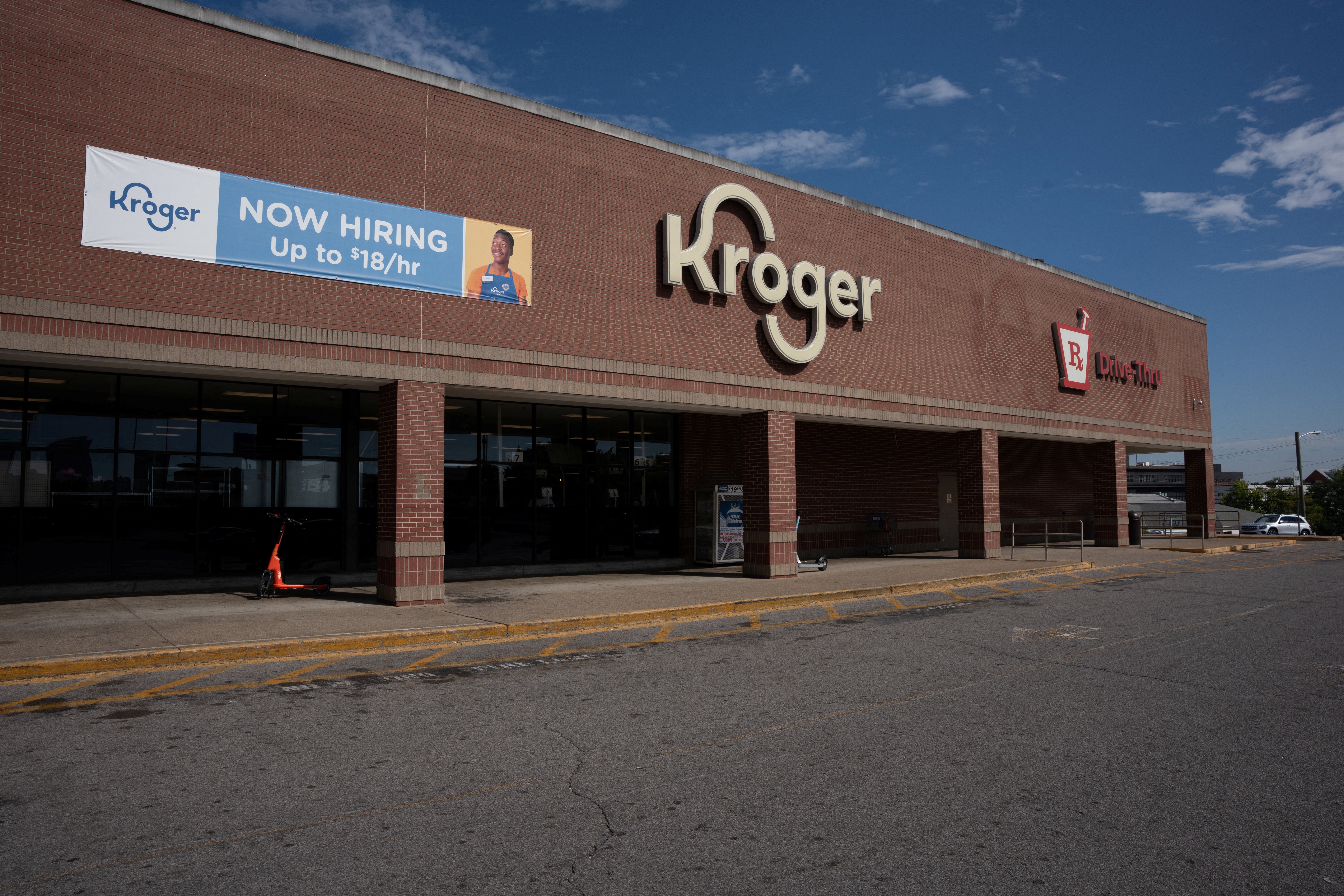Rashida Tlaib accuses supermarket brand of using facial recognition for surge pricing
Microsoft and Kroger have denied the use of facial recognition technology and the supermarket chain says it doesn’t engage in surge pricing
Your support helps us to tell the story
From reproductive rights to climate change to Big Tech, The Independent is on the ground when the story is developing. Whether it's investigating the financials of Elon Musk's pro-Trump PAC or producing our latest documentary, 'The A Word', which shines a light on the American women fighting for reproductive rights, we know how important it is to parse out the facts from the messaging.
At such a critical moment in US history, we need reporters on the ground. Your donation allows us to keep sending journalists to speak to both sides of the story.
The Independent is trusted by Americans across the entire political spectrum. And unlike many other quality news outlets, we choose not to lock Americans out of our reporting and analysis with paywalls. We believe quality journalism should be available to everyone, paid for by those who can afford it.
Your support makes all the difference.Michigan congresswoman Rashida Tlaib has called on Kroger to answer questions about its use of electronic shelving labels and facial recognition technology.
The Democrat told CEO Rodney McMullen she was worried about that technology being used discriminately, and was concerned about the potential it could lead to prices rising for essential goods – something that one of America’s largest supermarket chains has denied would happen.
“[Electronic shelving labels] or digital price tags may result in Kroger deploying dynamic pricing for goods, increasing the price of essential goods on shelves based on real time conditions and inventory and creating both confusion and hardship for my residents,” she wrote.
Tlaib also said it was her understanding that, through a partnership with Microsoft, Kroger was intending to place cameras at its digital displays, using facial recognition to determine the gender and age of the store’s customers who are captured on camera and using that information to present them with targeted advertising on the electronic shelving labels.
“Studies have shown that facial recognition technology is flawed and can lead to discrimination in predominantly Black and brown communities,” Tlaib said. “The racial biases of facial recognition technology are well-documented and should not be extended into our grocery stores.”

She said this was concerning given complaints about the rising cost of groceries at big retailers across the country, and that Kroger’s electronic tools could be “abused in the pursuit of profit.” She asked Kroger to answer several questions related to their plans.
But Kroger told Gizmodo on Wednesday that its business model was “built on a foundation of lowering prices to attract more customers.”
“To be clear, Kroger does not and has never engaged in ‘surge pricing.’ Any test of electronic shelf tags is designed to lower prices for more customers where it matters most. To suggest otherwise is not true,” the grocer said.
A spokesperson for Kroger also recently told Fast Company that its pilot program with Microsoft had ended and that it no longer uses the technology in any of its stores. They said the company has never used facial recognition in stores, and are not aware of any future plans to do so.

Kroger did not respond to The Independent’s multiple requests for comment on Thursday, but a Microsoft spokesperson also denied the use of facial recognition technology.
“Kroger is not using Microsoft facial recognition technology, and the current digital price tag technology being used is not the technology we piloted in 2019,” they said.
In 2019, Fast Company reported that Kroger was piloting a program called Enhanced Display for Grocery Environment (EDGE) and that it would implement artificial intelligence-powered facial recognition technology in some of its displays. An announcement from Microsoft published at around the same time does not mention facial recognition.
Tlaib and Massachusetts Senator Elizabeth Warren, and Pennsylvania Senator Bob Casey all cited that article in their letters to McMullen.
“I am concerned about whether Kroger and Microsoft are adequately protecting consumers’ data, and that as Kroger expands the personalized customer experience, customers will ultimately be offered a worse deal,” the Democrats Warren and Casey wrote in August.

It is unclear if Kroger answered questions posed by the lawmakers.
All three officials said that the price tags have been in stores since 2018. The lawmakers cited a report that year in Business Insider. Microsoft posted an article in June of 2018 detailing Kroger EDGE, which it presented as more “environmentally efficient” than paper tags.
“EDGE – which stands for Enhanced Display for Grocery Environment – relies on Microsoft Azure to store and process volumes of data generated by customer actions on and around the shelves,” Microsoft said. EDGE would be introduced at 120 stores that year, the tech giant noted.
A promotional video from Kroger said then that customers could be alerted to sales and coupons in seconds: “It increases productivity, drives ad revenue, boosts sales...”
Last year, Cooler Screens announced its own expansion with Kroger to bring smart screens to 500 stores across the US, following its own pilot program. Cooler Screens says its AI-driven software and hardware allows retailers to reach consumers on smart screens that “adapt to consumer interests and insights-driven context at the point of decision.”
More than 1,200 Kroger grocery retail stores operate in 16 states around the US.
Walmart announced in June that it would roll out its own tags in 2,300 of its stores after a successful pilot program.
Join our commenting forum
Join thought-provoking conversations, follow other Independent readers and see their replies
Comments